Video
Sign up for our newsletter
We summarize the week's scientific breakthroughs every Thursday.
-
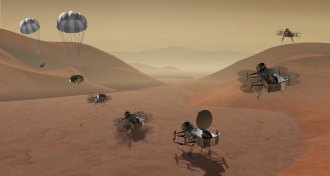 Planetary Science
Planetary ScienceWith Dragonfly, NASA is heading back to Saturn’s moon Titan
NASA’s next robotic mission to explore the solar system is headed to Saturn’s largest moon, Titan.
-
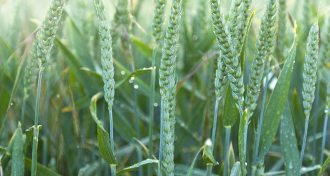 Life
Life‘Sneezing’ plants may spread pathogens to their neighbors
A “surface tension catapult” can fling dewdrops carrying fungal spores from water-repellent leaves.
-
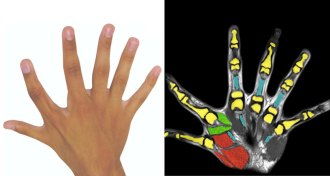 Health & Medicine
Health & MedicineExtra fingers, often seen as useless, can offer major dexterity advantages
Two people born with six fingers on each hand can control the extra digit, using it to do tasks better than five-fingered hands, a study finds.
-
 Life
LifeSome fungi trade phosphorus with plants like savvy stockbrokers
New views show how fungi shift their stores of phosphorus toward more favorable markets where the nutrient is scarce.
By Susan Milius -
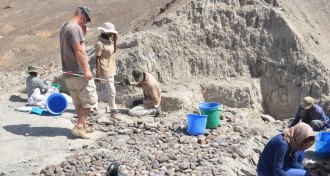 Anthropology
AnthropologyHominids may have been cutting-edge tool makers 2.6 million years ago
Contested finds point to a sharp shift in toolmaking by early members of the Homo genus.
By Bruce Bower -
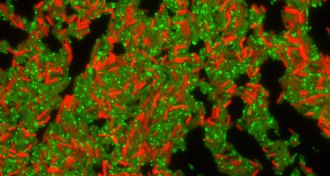 Life
LifeHow bacteria nearly killed by antibiotics can recover — and gain resistance
A pump protein can keep bacteria alive long enough for the microbes to develop antibiotic resistance.
-
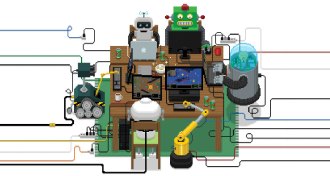 Artificial Intelligence
Artificial IntelligenceAI can learn real-world skills from playing StarCraft and Minecraft
By playing StarCraft and Minecraft, artificial intelligence is learning how to collaborate and adapt.
-
 Earth
EarthDry sand can bubble and swirl like a fluid
Put two types of sand grains together in a chamber, and they can flow like fluids under the right conditions.
-
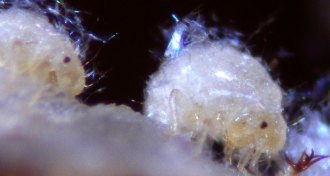 Animals
AnimalsHow aphids sacrifice themselves to fix their homes with fatty goo
Young aphids swollen with fatty substances save their colony by self-sacrifice, using that goo to patch breaches in the wall of their tree home.
By Susan Milius -
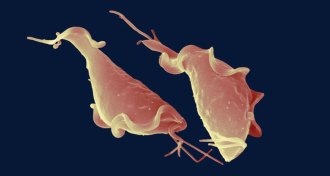 Health & Medicine
Health & MedicineHow an obscure sexually transmitted parasite tangos with the immune system
Scientists are working out how Trichomonas vaginalis, one of the most prevalent sexually transmitted infections, causes problems in women and men.
By Amber Dance -
 Astronomy
AstronomyThe first picture of a black hole opens a new era of astrophysics
Astronomers used a network of telescopes around the world to take a picture of the supermassive black hole in the galaxy M87.
By Lisa Grossman and Emily Conover -
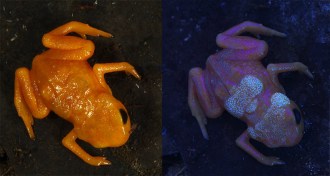 Animals
AnimalsTiny pumpkin toadlets have glowing bony plates on their backs
Pumpkin toadlets are the first frogs found to have fluorescent bony plates that are visible through their skin under ultraviolet light.
By Jeremy Rehm